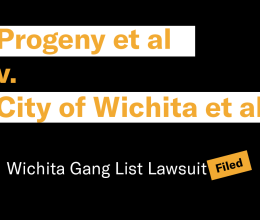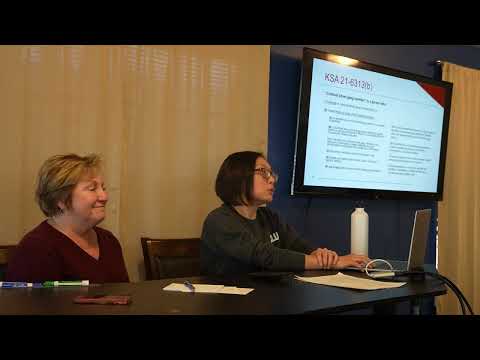
On this page, you'll find answers to frequently asked questions following the settlement reached in Progeny v. City of Wichita. This page is not a substitute for legal advice in your individual case.
Last updated August 27, 2024
- A settlement has been reached with the City of Wichita (“the City”) in a class action lawsuit alleging that the Wichita Police Department (“WPD”), is violating Class Members’ Fourteenth and First Amendment rights by incorrectly including them in the WPD’s Gang List/Database as gang members or gang associates. The City denies that it is violating the rights of Plaintiffs or any other Class Member.
- You may be included in the settlement as a member of the Class if you are included in the WPD’s Gang List/Database as an Active or Inactive Gang Member or Gang Associate.
- The Court overseeing this case has approved the settlement. For the precise terms and conditions of the settlement, please see the settlement agreement.
You may use this affidavit form if you wish.
For more in-depth information on the gang list and your rights under the settlement, check out this recorded information session or the FAQs below.

